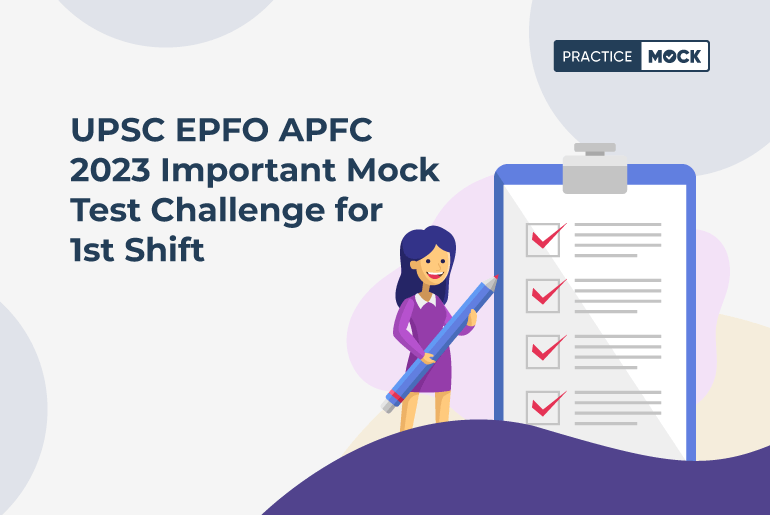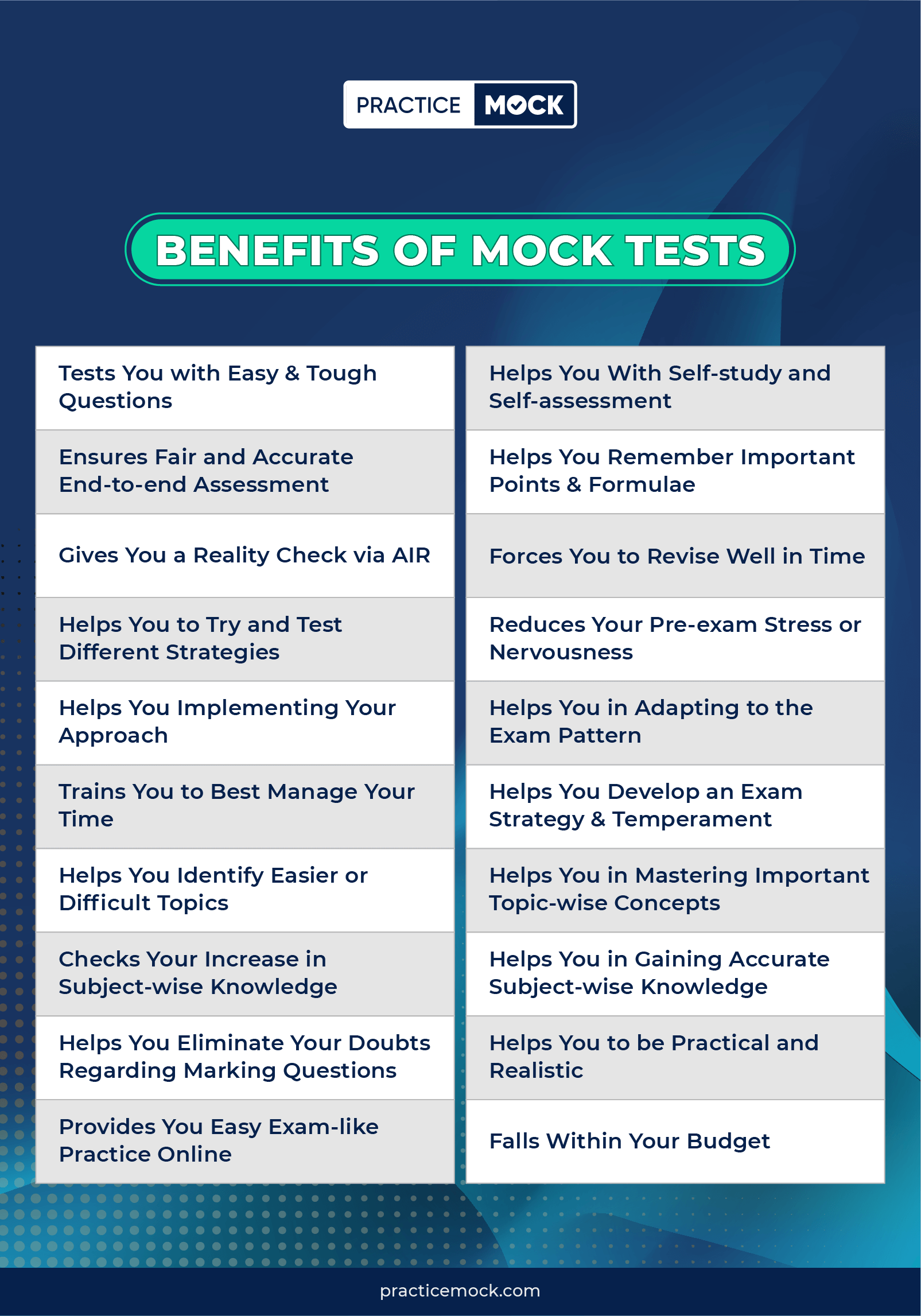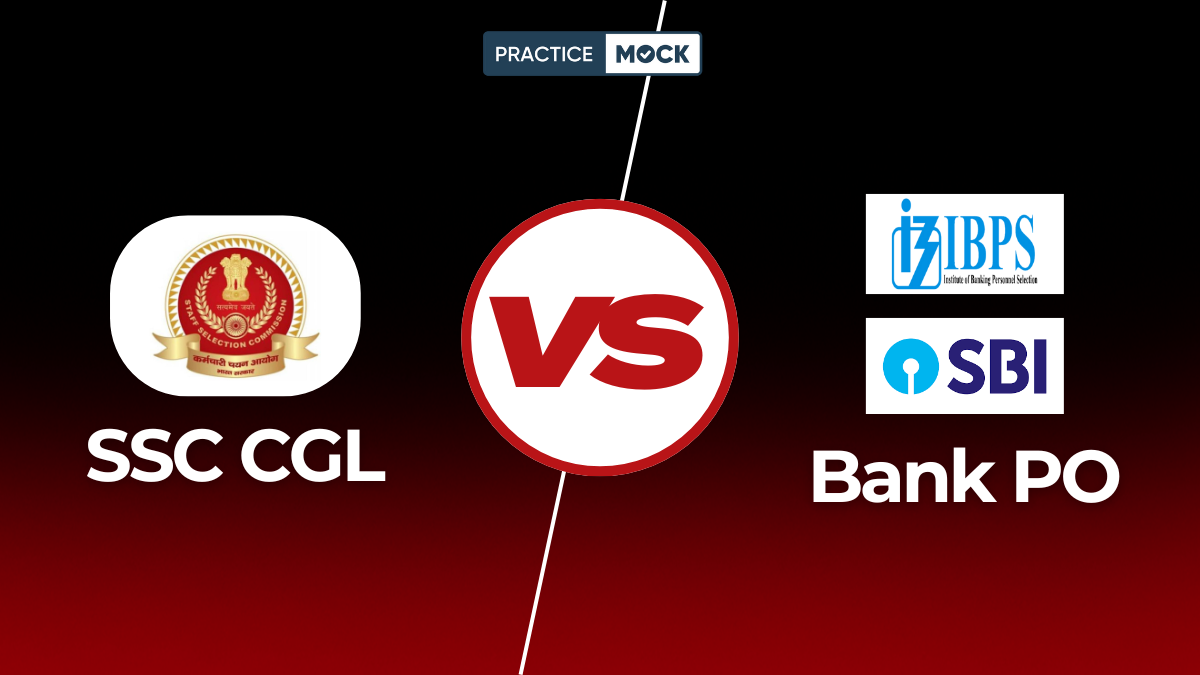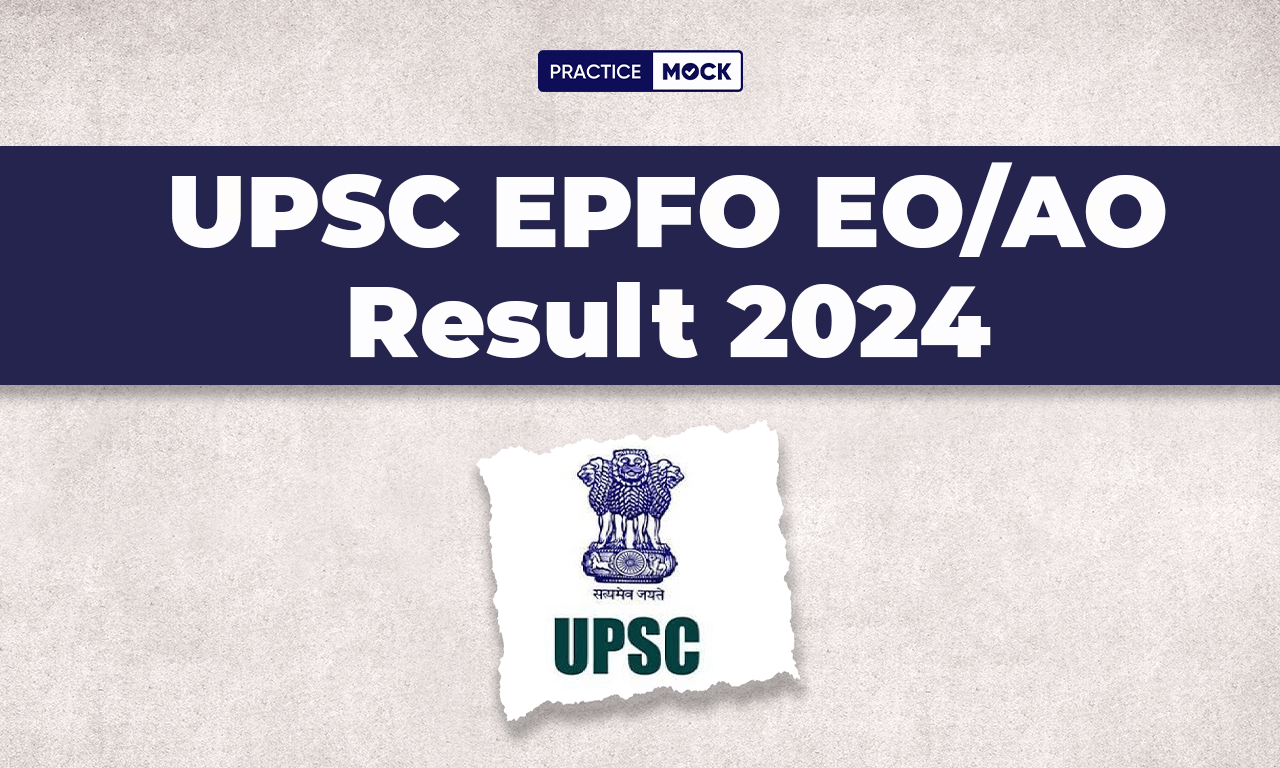

The Union Public Service Commission (UPSC) conducts the Employees’ Provident Fund Organisation (EPFO) Assistant Provident Fund Commissioner (APFC) examination, a highly competitive and prestigious exam for candidates aspiring to work in the Employees’ Provident Fund Organization. To crack this exam, rigorous preparation, and thorough practice are essential. One crucial aspect of preparation is attempting mock tests, which simulate the actual exam environment and help identify areas for improvement. In this blog, we will discuss the significance of mock tests and highlight some important challenges for the 1st shift of the UPSC EPFO APFC 2023 exam.
Get EPFO APFC Free Mock Test & Analyze Your Performance
Free Quizzes & Mini Mocks
Get EPFO APFC Free Mock Test & Analyze Your Performance
Importance of Mock Tests:
Mock tests play a vital role in the preparation journey of any competitive examination, and the UPSC EPFO APFC exam is no exception. Here’s why attempting mock tests is essential:
- Familiarize with Exam Pattern: Mock tests clearly understand the exam pattern, structure, and marking scheme. They help candidates become familiar with the number of questions, time duration, and sections of the exam, enabling them to manage their time effectively during the actual test.
- Time Management: The UPSC EPFO APFC exam is known for its time constraints. Mock tests allow candidates to practice time management skills by attempting questions within the stipulated time frame. Regular practice helps improve speed and accuracy, which are crucial for success.
- Identify Strengths and Weaknesses: Mock tests help candidates assess their level of preparedness by identifying their strengths and weaknesses in various subjects and sections. It enables them to focus on weak areas and devise effective strategies to improve their performance.
- Test-Taking Strategies: Mock tests provide an opportunity to develop effective test-taking strategies such as question selection, prioritization, and elimination techniques. Regular practice helps build confidence and reduces exam anxiety.
- Exam Simulation: Mock tests replicate the real exam environment, creating a similar level of pressure and time constraints. This experience helps candidates adapt to the exam scenario, boosting their confidence and minimizing the chances of making mistakes due to nervousness.
Get EPFO APFC Free Mock Test & Analyze Your Performance
- General English: This section assesses candidates’ proficiency in English language skills, including comprehension, grammar, vocabulary, and sentence formation. Practice mock tests with various question types, such as cloze tests, comprehension passages, and error detection exercises, to enhance language skills and accuracy.
- General Studies: This section tests candidates’ knowledge in Indian Polity, Economy, History, Geography, and Current Affairs. Practice mock tests that cover a wide range of topics and focus on both static and dynamic portions of the syllabus. Stay updated with current events and refer to standard study materials for thorough preparation.
- Last Minute Tips for UPSC EPFO APFC 2023 Exam
- Indian Freedom Struggle and Industrial Relations: These topics hold significant weightage in the exam. Mock tests should include questions on important events, leaders, and industrial relations concepts. Focus on understanding the historical background and industrial relations practices in India to tackle questions effectively.
- Numerical Ability: This section evaluates candidates’ quantitative aptitude, including topics like simplification, percentage, ratio and proportion, averages, and data interpretation. Practice mock tests with a diverse set of numerical problems to improve calculation speed, accuracy, and problem-solving skills.
- General Mental Ability and Reasoning: This section examines candidates’ logical and analytical reasoning skills. Mock tests should include a variety of reasoning questions, such as coding-decoding, blood relations, syllogism, and analogies. Regular practice enhances mental agility and improves performance in this section.
Get EPFO APFC Free Mock Test & Analyze Your Performance
Free Quizzes & Mini Mocks
Recent Posts
RRB ALP CBT 2 Expected Cut Off 2025, Check Latest Cut Off
The RRB has conducted the RRB ALP CBT 2 exam. Candidates can check the RRB…
How to score 40 out of 40 in RRB Clerk Reasoning
In this article we have discussed how to score 40 out of 40 in RRB…
Do RBI Grade B Officers Get Foreign Trips?
This blog answers if RBI Grade B Officers get foreign trips, how often they occur,…
Important Simple Interest Questions Asked in RRB Clerk Exam
In this article, we have given the important simple interest questions asked in the RRB…
Weekly Current Affairs PDF 2025, Free Download For Banking, SSC Exams
Here we have provided Weekly Current Affairs 2024 PDF. Candidates can download Free Weekly Currents…
Who Earns More, an RBI or IAS?
Learn the real difference in RBI and IAS salaries. A clear, honest comparison to help…



